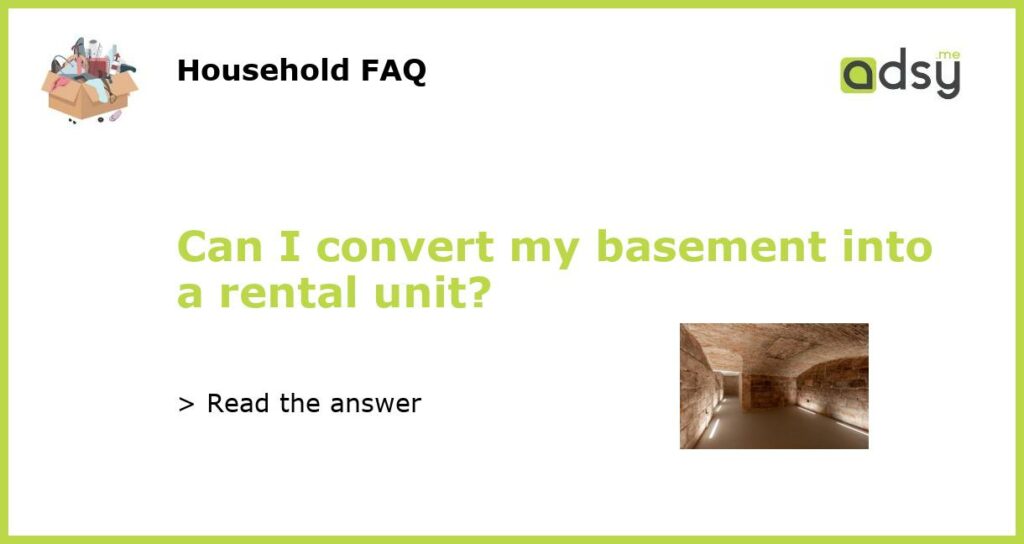Yes, you can convert your basement into a rental unit
If you have a basement that is not being utilized to its full potential, converting it into a rental unit can be a great way to generate extra income. However, there are several important factors to consider before you embark on this project. In this article, we will explore the steps you need to take and the potential challenges you may encounter when converting your basement into a rental unit.
Understanding local regulations and zoning requirements
Before converting your basement into a rental unit, it is essential to understand the local regulations and zoning requirements in your area. Different municipalities have different rules and restrictions when it comes to creating secondary suites or rental units. Some areas may require you to obtain permits or go through an approval process. It is important to research and comply with these regulations to avoid potential legal issues in the future.
Assessing the feasibility of the space
Not all basements are suitable for conversion into rental units. It is crucial to assess the feasibility of the space before moving forward with the project. Consider factors such as ceiling height, natural light, ventilation, and accessibility. You may also need to make modifications to meet building codes and safety standards. Consulting with a contractor or architect can help you determine if your basement is a viable option for conversion.
Creating a separate entrance and ensuring proper access
To convert your basement into a rental unit, it is essential to create a separate entrance to ensure privacy and accessibility for both the tenants and yourself. This may involve building an outdoor staircase, constructing an interior hallway, or converting an existing window into a door. Additionally, you need to ensure that the rental unit has proper access to utilities such as electricity, water, and heating.
Building code and safety requirements
When converting your basement into a rental unit, you need to ensure that the space meets building code and safety requirements. This includes measures such as proper insulation, fire safety precautions, and adequate ventilation. You may also need to install proper egress windows or exits to comply with safety regulations. Hiring a professional contractor or architect who is familiar with local building codes can help you navigate these requirements.
- Understanding local regulations and zoning requirements
- Assessing the feasibility of the space
- Creating a separate entrance and ensuring proper access
- Building code and safety requirements






